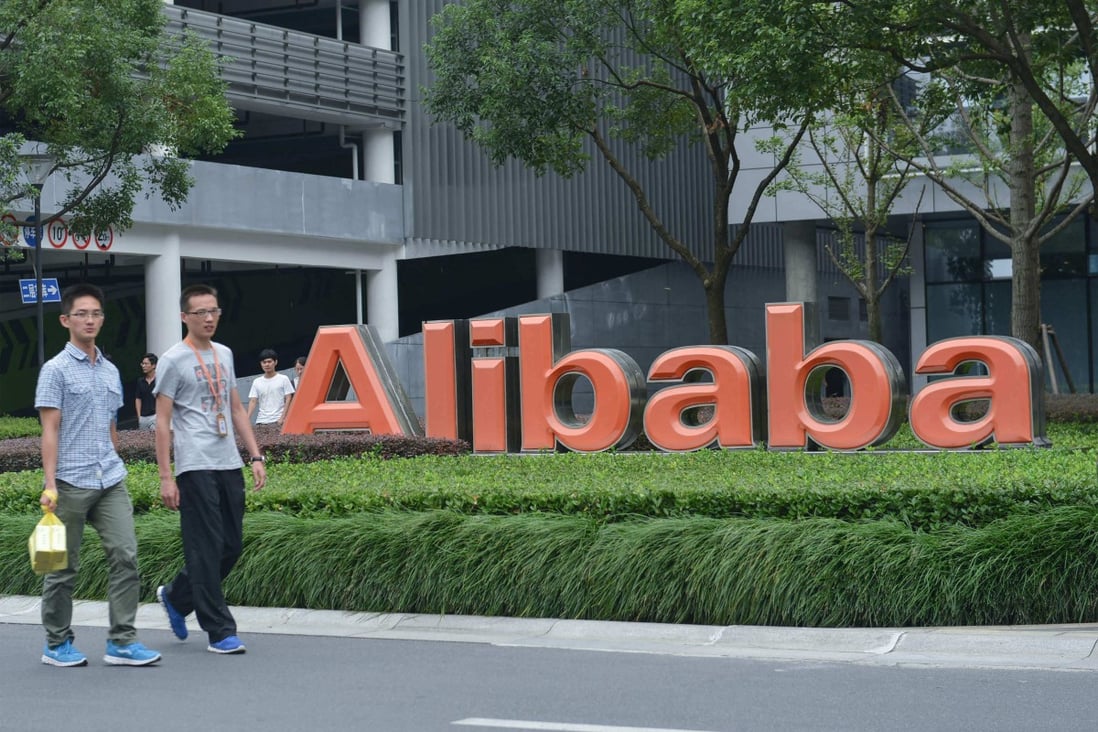Hamartia Antidote
ELITE MEMBER

- Joined
- Nov 17, 2013
- Messages
- 35,188
- Reaction score
- 30
- Country
- Location

Alibaba’s break-up plan has employees worried about their future
Some employees say the separation could hinder communication between units, and reduce outsiders’ trust of smaller departments.
- Alibaba wants to restructure its business into six units, one of them being domestic e-commerce, which currently makes most of the group’s revenue
- Some employees say the separation could hinder communication between units, and reduce outsiders’ trust of smaller departments

Staff members walk past the logo of Chinese e-commerce giant Alibaba at its headquarters in Hangzhou, in China’s eastern Zhejiang province. Photo: AFP
Alibaba Group Holding’s recent decision to split its US$257 billion business empire into six independently-run units has been largely welcomed by investors, but internally, some employees are worried about the future of less profitable departments and job security.
The Hangzhou-based tech giant last week announced its plan to restructure the firm into half a dozen entities, each reporting to their own CEOs and responsible for their own funding. The units include cloud computing, Chinese commerce, smart logistics, local services, global business, and media and entertainment.
“When the kids are grown, they need to leave home to face the market by themselves,” Alibaba CEO Daniel Zhang Yong told employees in a widely-circulated video last week. “I hope there will be multiple listed companies emerging from the Alibaba system, and that they will continue to nurture their own sons and daughters, and cultivate more listed companies.”
Alibaba’s share price shot up in both New York and Hong Kong after the announcement of the restructuring plan.
Some employees, however, appear less hopeful.
One Alibaba staff member, whose work is unrelated to e-commerce and who declined to be identified because of the sensitivity of the matter, said some colleagues have started to fret over how potential clients and business partners would view the change.
The name Alibaba carries weight when the team is building business relationships in the industry, the person said, but that advantage could be lost when the team becomes independent
Being spun off into a smaller organisation could also deprive employees of a sense of belonging to a bigger group, the person said, adding that the restructuring might work out better for the domestic commerce unit, which contributed most of Alibaba’s revenue.
Over two-thirds of Alibaba’s recent revenue came from China-based e-commerce, while the other five units each generated 3 per cent to 8 per cent of the group’s sales, according to Scott Kessler, global sector lead at business consultancy Third Bridge.
Another employee, who works in a middle-office role at Alibaba and also requested anonymity, expressed concern about job losses, as CEO Zhang has said the company would “lighten” its middle and back-office functions.
In 2022, Alibaba axed almost 20,000 jobs as China’s Big Tech companies worked to streamline their businesses and rein in costs under a regulatory crackdown and slowing economy.
One employee, who spoke on the condition of anonymity, said breaking down Alibaba into smaller units would not solve the challenges that it currently faces.
That person said collaboration has already been difficult between teams, and the restructuring could erect more walls and make communication even harder.
